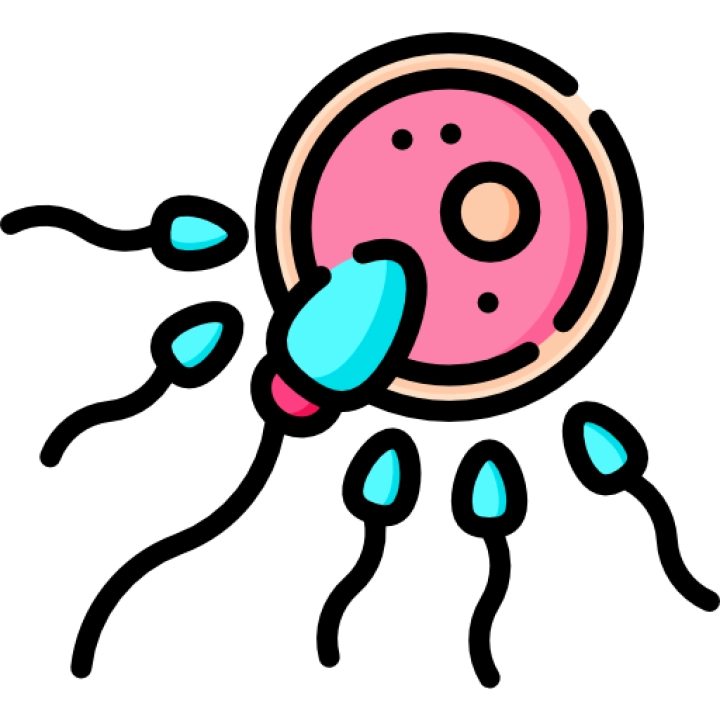College: Graduate Program Institute
This specialization focuses on studying the reproductive systems and processes in various living organisms. Students explore key areas such as reproductive physiology, endocrinology, genetics, developmental biology, and reproductive technologies. The program emphasizes experimental and theoretical knowledge, research methodologies, and understanding clinical and agricultural applications. Graduates are prepared for careers in research, healthcare, agriculture, and biotechnology.
Learning Objectives:
- Understand the basics of reproductive biology and physiology.
- Develop skills in reproductive endocrinology, genetics, and developmental biology.
- Learn techniques for studying reproductive systems and processes.
- Explore the principles and applications of reproductive technologies.
- Understand the role of reproductive biology in clinical and agricultural environments.
- Analyze challenges and opportunities in reproductive research and applications.
- Develop teamwork and problem-solving skills for research projects and clinical settings.
Main Course Outline:
- Introduction to Reproductive Biology
- Overview of reproductive biology, key concepts, and historical context.
- Basics of reproductive physiology and endocrinology.
- Reproductive Physiology
- Principles of reproductive physiology, including gametogenesis, fertilization, and embryonic development.
- Techniques for studying reproductive physiological processes.
- Reproductive Endocrinology
- Basics of reproductive endocrinology, including hormonal regulation and reproductive cycles.
- Techniques for studying and managing endocrine disorders related to reproduction.
- Reproductive Genetics
- Principles of reproductive genetics, including genetic control of reproduction and inheritance.
- Genetic analysis techniques and manipulation in reproductive biology.
- Developmental Biology
- Basics of developmental biology, including embryogenesis, organogenesis, and morphogenesis.
- Techniques for studying developmental processes and mechanisms.
- Reproductive Technologies
- Principles of reproductive technologies, including assisted reproductive technologies (ART) and biotechnology applications.
- Techniques for developing and implementing reproductive technologies.
- Research Methodologies in Reproductive Biology
- Principles of research methodologies, including experimental design, data collection, and analysis.
- Techniques for conducting and evaluating research in reproductive biology.
- Clinical and Agricultural Applications
- Exploration of clinical and agricultural applications of reproductive biology.
- Techniques for applying reproductive biology knowledge in healthcare and agriculture.
- Practical Training in Reproductive Biology
- Real-world research and clinical experiences, including observations, internships, and practical projects.
- Techniques for applying acquired skills in practical reproductive biology settings.
- Capstone Project in Reproductive Biology
- A comprehensive project to apply skills acquired in reproductive physiology, genetics, or technology.
- Techniques for presenting an innovative and outstanding research project in reproductive biology.
Assessment Methods:
- Reports on reproductive physiology, endocrine analyses, genetic studies, developmental biology projects, reproductive technology plans, research methodology papers, clinical and agricultural application studies, practical training reports, capstone projects, group projects, and internships.
Recommended Textbooks:
- "Reproductive Physiology" by Richard J. Tasca and Robert D. Delaney.
- "Reproductive Endocrinology, Infertility, and Assisted Reproduction" by Robert L. Barbieri.
- "Principles of Developmental Biology" by Lewis Wolpert et al.
- "Reproductive Genetics" by Mark Hughes and Sally Dunwoodie.
- "Research Methods in Reproductive Biology" by various authors.
Prerequisites:
Basic knowledge of biology, physiology, and genetics. Suitable for students interested in reproductive biology, healthcare, agriculture, and biotechnology.
Duration:
Typically 4 years to complete a bachelor's degree, including coursework, projects, practical training, and internships. Advanced degrees may take additional years.
Certification:
Graduates may earn a degree in reproductive biology and pursue professional certifications in reproductive research, healthcare, or biotechnology.
Target Audience:
Aspiring reproductive biologists, healthcare professionals, agricultural scientists, and biotechnology experts seeking specialization in reproductive biology. This program equips students with the experimental, theoretical, and practical skills necessary to excel in reproductive biology, supporting careers in research, healthcare, agriculture, and biotechnology.

